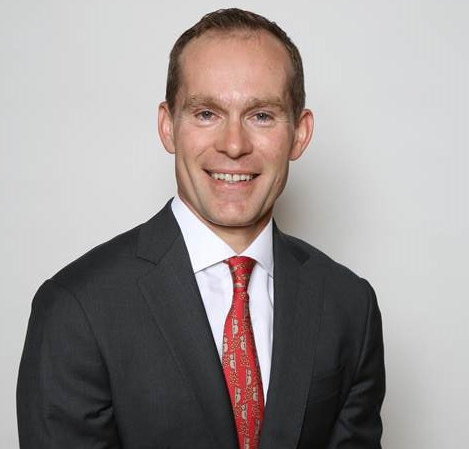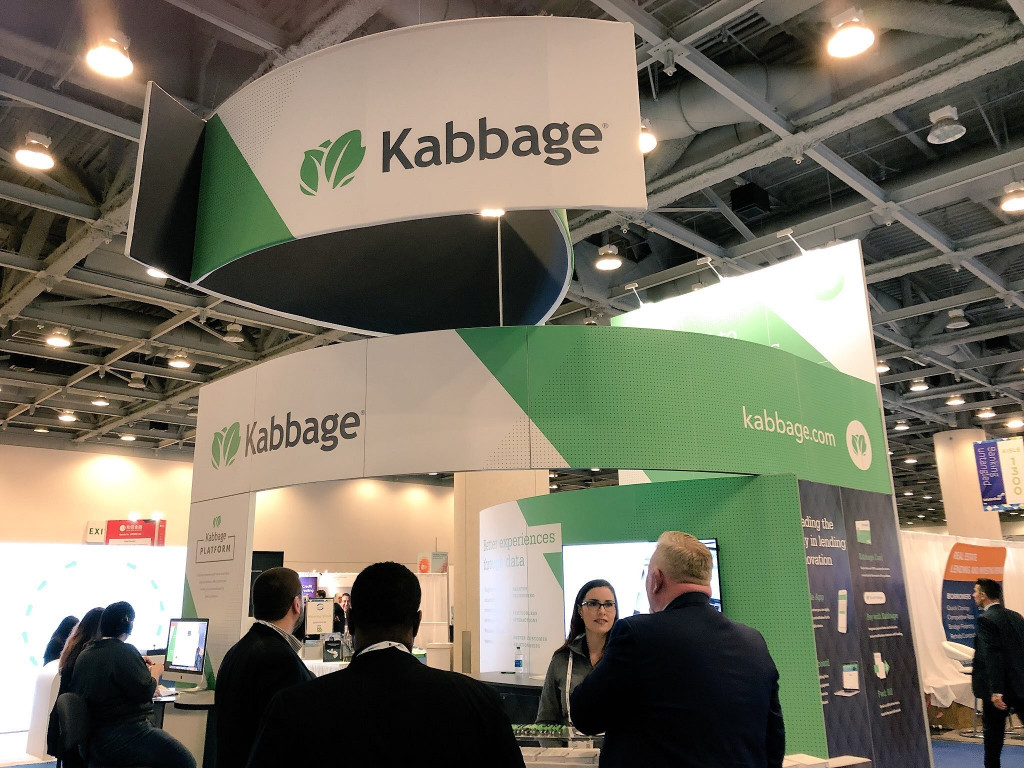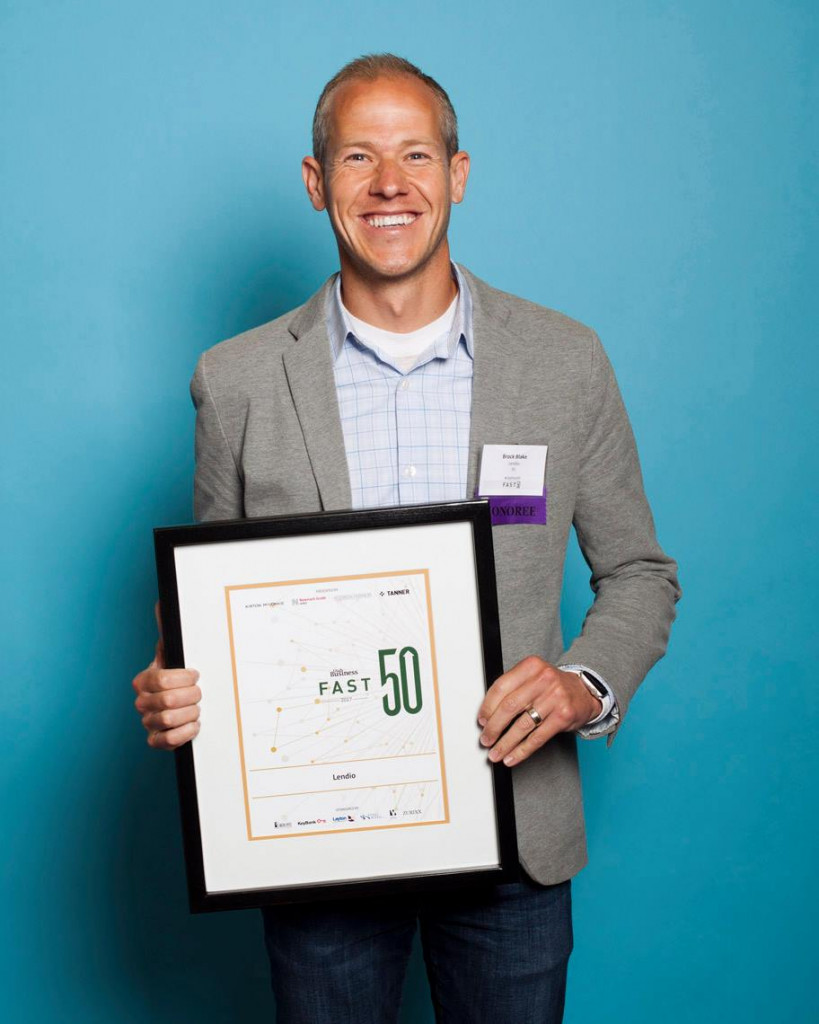CAN Capital Hires New CFO
April 17, 2018 CAN Capital has just hired Tom Davidson, a finance veteran, to become its new CFO. Davidson joins CAN Capital from Sierra Auto Finance where he was Chief Financial Officer and Chief Capital Officer. Before that, he worked at GE Capital for 16 years, eventually becoming Chairman and CEO of GE Capital Markets, Inc.
CAN Capital has just hired Tom Davidson, a finance veteran, to become its new CFO. Davidson joins CAN Capital from Sierra Auto Finance where he was Chief Financial Officer and Chief Capital Officer. Before that, he worked at GE Capital for 16 years, eventually becoming Chairman and CEO of GE Capital Markets, Inc.
“Given that we’re growing rapidly and looking to expand our business significantly, we were looking for someone with the kind of experience Tom has,” CAN Capital CEO Parris Sanz said. “Mainly an expert in capital markets [with] great experience and expertise with securitizations, treasury and investor relations. [The decision to hire Davidson] is reflective of our future growth plans and the speed with which we expect to be growing.”
CAN has funded more than $200 million to small businesses since their rebirth in July last year. Between term loans and MCA funding, Sanz said that CAN Capital’s business is about 80 percent term loans and 20 percent MCA.
“It’s rare to have the opportunity to join a company that is a genuine pioneer in its field and also so well-positioned for future growth,” Davidson said. “[Also] what attracted me to CAN Capital is the opportunity to serve the small businesses that form the backbone of the American economy.”
Davidson will be replacing Ray De Palma who is staying on at the company in the role of Chief Accounting Officer. Founded in 1998, CAN Capital celebrates its 20th anniversary this year. It has about 150 employees spread across three offices in New York, Georgia and Costa Rica. The bulk – about 120 employees – are in Georgia. The executive and accounting teams are located in New York and part of the company’s IT team is based in Costa Rica.
Kabbage to Acquire Orchard Platform Markets
April 14, 2018Update 4/26/18: The acquisition is now confirmed
 Kabbage is set to acquire Orchard Platform Markets, a provider of lending data and investment advisory services, according to a Bloomberg report yesterday. However, neither company has confirmed this and both companies were unreachable today.
Kabbage is set to acquire Orchard Platform Markets, a provider of lending data and investment advisory services, according to a Bloomberg report yesterday. However, neither company has confirmed this and both companies were unreachable today.
Orchard was founded in 2013 by David Snitkof, Angela Ceresnie, Jonathan Kelfer, Matt Burton and Phil Rosen. Burton and Kelfer both worked previously at Google and Snitkof and Ceresnie worked at Citigroup and American Express. The company has raised nearly $60 million in three rounds, according to Crunchbase, and investors include Spark Capital, Thrive Capital, as well as Vikram Pandit, former CEO of Citigroup and John Mack, former CEO of Morgan Stanley. Indeed, no shabby group.
As this acquisition has not yet been confirmed, the amount Kabbage might be paying for the company is also unknown. According to Orchard’s website, it employs 31 people (including executives) in an office in Manhattan’s Flatiron district, known as a hub for tech startups. The Bloomberg story indicates that co-founders Burton and Snitkof will join Kabbage at its New York office. Founders Ceresnie and Rosen no longer work for Orchard. With headquarters in Atlanta, Kabbage is one of the largest small business lenders in the country and recently launched a new feature of its loan product at LendIt.
Despite the big name investors Orchard had when it started, some suspect the company may have lost momentum. deBanked called a number of leaders in the alternative lending space and none were willing to comment until the acquisition was made certain.
Harvesting Inc Uses AI to Assess Credit Risk for Farm Lenders
April 12, 2018 This week, Silicon Valley-based Harvesting Inc launched an Artificial Intelligence (AI)-backed platform that uses satellite images of farms to gauge credit risk for banks that lend to farmers.
This week, Silicon Valley-based Harvesting Inc launched an Artificial Intelligence (AI)-backed platform that uses satellite images of farms to gauge credit risk for banks that lend to farmers.
The technology can be used to capture data on farms in the developing world as well as in mature markets like the US. Harvesting Inc generates “credit scorecards” using satellite imagery of farms and other data points, already in the works in the African market.
“Think of us as someone who calculates the language of agriculture [into] the language of finance,” Garg said.
Garg told deBanked that because small farmers in emerging markets don’t have credit cards, let alone smartphones, they have no credit history and their creditworthiness can’t be evaluated through a traditional Western banking system. That’s where Harvesting Inc comes in. It evaluates a farmer’s asset (his or her farm) in a completely objective way – through satellite images of the crops and by using historical data about past seasons.
Using satellites to assess farms is not brand new. However, Garg said that satellite data has typically been used by farmers in developed countries to see more clearly how their crops are performing. Harvesting Inc’s use of satellite data is meant to better inform lenders (mostly national and regional banks in developing countries) about the farms they have lended to or are considering lending to. In many countries, national banks are required to make loans to farmers. Garg said that in India national banks must have 18 percent of their loans assigned to agriculture.
Harvesting Inc is not a lender. Instead, it sells its credit risk technology mostly to banks in emerging markets. However, Garg told deBanked that some American banks have approached him with interest in their new AI product.
“Banks have processes today,” Garg said, “but we believe [our AI technology] will be able to provide faster and more accurate data.”
Harvesting Inc was founded by Garg in 2016 and has 12 employees. The primary office is in Silicon Valley, with another office in Bangalore, India.
Lendio’s New Turndown Program Grows
April 11, 2018 Lendio, the marketplace for borrowers and lenders, announced on Monday that its Turndown program has facilitated nearly $60 million in loans in less than a year since its launch last summer. The Lendio Turndown program allows participating lenders to refer borrowers to the Lendio marketplace that have been declined.
Lendio, the marketplace for borrowers and lenders, announced on Monday that its Turndown program has facilitated nearly $60 million in loans in less than a year since its launch last summer. The Lendio Turndown program allows participating lenders to refer borrowers to the Lendio marketplace that have been declined.
“Instead of just saying ‘No’ to a customer and wishing them the best of luck, we’ve established this Turndown program where a lender can say ‘Unfortunately, [you’re] not a great fit for us, but we work directly with Lendio and they have a marketplace and other loan options,’” Lendio CEO Brock Blake told deBanked.
The lender has an incentive to refer a declined customer to the Lendio marketplace because the lender gets a revenue share if the customer it declined is funded by another lender on the Lendio marketplace.
“We’re very excited about the Turndown program because it allows us to deepen the relationships we have with our lenders…and it also helps [lenders] monetize and recoup some of their marketing spend,” Blake said.
While the Turndown program started in beta about two years ago, it wasn’t launched until the second quarter of 2017. So far, the program has 20 lender partners, some of which are not the same as the 70 participating lenders on the Lendio marketplace platform. Blake told deBanked that he hopes all 70 lenders will join the Turndown program, as well others, including banks.
Blake also said that most people think a “turndown” automatically means that a borrower has across-the-board bad credit. He concedes that this could be the case, but also acknowledged that there are a variety of loan products that have different credit requirements.
“If a borrower comes in for an equipment loan and they are not going to qualify for an equipment loan, then they might be declined,” Blake said. “But they might qualify for a working capital loan.”
Based in Salt Lake City, UT, the company was founded in 2011 and also has an office in New York. Of about 150 employees, 100 work at the headquarters in Salt Lake City and 50 work in New York.
Best Egg Exceeds $5 Billion in Loans
April 11, 2018 Now four years old, the consumer-lending platform Best Egg has delivered more than $5 billion in personal loans. The Wilmington, DE-based lender does not offer business loans. However, Best Egg CEO Jeffrey Meiler told deBanked that they are increasingly making loans to people who are self-employed.
Now four years old, the consumer-lending platform Best Egg has delivered more than $5 billion in personal loans. The Wilmington, DE-based lender does not offer business loans. However, Best Egg CEO Jeffrey Meiler told deBanked that they are increasingly making loans to people who are self-employed.
“Structurally, one of the things that has really been a tailwind to this industry is the whole move to the gig economy and people having income that is less regular,” Meiler said. “It has increased demand for what we provide.”
Meiler is referring to, among others, freelancers, who are essentially one-person businesses. Best Egg specializes in personal loans with repayment periods of either 36 or 60 months. Some loans are used for large purchases while the majority are used for consolidating debt or refinancing.
“We mostly cater to people who want to get out of debt,” Meiler said.
Best Egg does all of its marketing internally and has 280 employees.
Kabbage, LendingPoint to Offer Real Time Funding Via Push Payments
April 9, 2018 Kabbage and LendingPoint each separately announced today that they will soon be able to get funds into their customers’ business accounts instantly and 24/7 via their pre-existing bank debit card. Hopes for this are not brand new. Last October, OnDeck announced a partnership with Ingo and Visa that would provide this convenience to borrowers, although this has not yet come to fruition, according to an OnDeck spokesperson. This is also not Kabbage’s first foray into real-time loan funding.
Kabbage and LendingPoint each separately announced today that they will soon be able to get funds into their customers’ business accounts instantly and 24/7 via their pre-existing bank debit card. Hopes for this are not brand new. Last October, OnDeck announced a partnership with Ingo and Visa that would provide this convenience to borrowers, although this has not yet come to fruition, according to an OnDeck spokesperson. This is also not Kabbage’s first foray into real-time loan funding.
“We launched [a real-time loan product] through the debit network three years ago and we were really excited about the results,” said Kabbage co-founder Kathryn Petralia . “Our customers really liked it, [but] our challenge was that we couldn’t get broad enough coverage. Only a small percentage of our customers were able to use it…so we’re excited about our partnership with Ingo because it gives us the ability to broaden this to about 90 percent of our customers.”
Kabbage has entered into a relationship with Ingo and has plans to make this service available to customers this summer. One might wonder why, on a weekend, a merchant needs money and can’t wait until Monday?
 “Our customers are always looking to expedite the process,” Petralia said, “not because they’re desperate for cash, but because they really are desperate for time, and they don’t want to spend a bunch of time reconciling their bank accounts [and] making sure the funds have arrived. This is a much cleaner way for them to get access to capital.”
“Our customers are always looking to expedite the process,” Petralia said, “not because they’re desperate for cash, but because they really are desperate for time, and they don’t want to spend a bunch of time reconciling their bank accounts [and] making sure the funds have arrived. This is a much cleaner way for them to get access to capital.”
Meanwhile, as part of an announcement by LendingPoint today, the company said that later this year it will be able to “instantly disburse loans to approved borrower accounts through their debit cards, 24/7/365.” This will be facilitated through the TabaPay platform, which also enables LendingPoint borrowers to use their debit card to make loan payments.
Ocrolus Announces $4 Million Investment at LendItFintech Conference
April 9, 2018 Sam Bobley, CEO
Sam Bobley, CEOOcrolus, which provides analysis of financial documents, announced today a $4 million Series A investment led by Bullpen Capital with participation from QED Investors, Laconia Capital Group, ValueStream Ventures and RiverPark Ventures. The company says that its lean RegTech technology analyzes bank statements and other financial documents with over 99 percent accuracy.
“We’ve proven our technology as a disruptive solution for bank statement analysis,” said Sam Bobley, co-founder and CEO of Ocrolus. “Customer demand prompted us to begin analyzing loan applications, tax documents, pay stubs and more. We’re thrilled to have the capital to quickly expand our team, and ideal strategic partners to help us scale the business.”
Orcolus’ technology has been embraced by alternative funders that want to expedite their underwriting process.
“Data entry is not a core component of our business,” said Sol Lax, CEO of Pearl Capital. “Ocrolus has become our trusted partner for bank statement reviews, allowing us to scale volume with a leaner underwriting staff.”
The New York-based company, which has 19 employees, was founded in 2014, but wasn’t launched until 2016. Bobley told deBanked that the first few years were devoted to research and development and he also told us a little bit about the company name.
“The core technology that we built the system on is called OCR, for Optical Character Recognition,” Bobley said. “So the idea is that Ocrolus is an expanded and modern version of OCR…which can read statements with 85 to 90 percent accuracy, [while] Ocrolus reads statements with 99 percent accuracy.”
InterNex Capital Fills Void in Higher End of Alternative Lending Market
April 6, 2018
New York-based Internex Capital is serving the higher end of the alternative lending market by providing revolving lines of credit from $250,000 to $5 million dollars, with an average deal size of roughly $1 million.
“We realized that there was not a revolving line of credit solution for small businesses,” said Simon Hermiz, a Fintech entrepreneur and one of the four founders of InterNex Capital. “This product does exist in the middle market and large corporate markets, but [didn’t] exist for small businesses.”
So the team of founders decided to fill this void, particularly in the lower-middle market, or for small businesses with revenues up to $50 million, but no less that $1 million, Hermiz told deBanked. Two members of the founding team, CEO Paul DeDomenico and COO Lin Chua, are former GE Capital veterans. The other two are Hermiz, who manages risk, and CTO Jim Miller, who has worked in credit technology for years.
Hermiz explained that there were essentially only three alternatives for small businesses in search of capital: cash advances, term loans and factoring. While banks have long provided credit to large companies based on the company’s assets, called “asset based line of credit,” there had not been a product like this for small companies.
“So what we want to do is craft an upper end kind of product in this market so that [small businesses] can feel bankable,” Hermiz said, “…because with our line of credit product, we’re not notifying all their customers that they sold their invoices. Because they’re not selling invoices.”
InterNex Capital does not do factoring, but its product resembles factoring.
“The important nuance is that we’re not buying the invoice, like a factor. We’re lending against it,” Hermiz said.
Because banks also lend against invoices, Hermiz said that the company, of 15 employees, competes with banks for business. They work mostly with ISOs, but they also have an internal sales team that handles client relations.
Founded in 2015, InterNex Capital’s proprietary platform is called Velocity and was designed in large part by the company’s partner, Genpact, a public company that was incubated in GE.






























